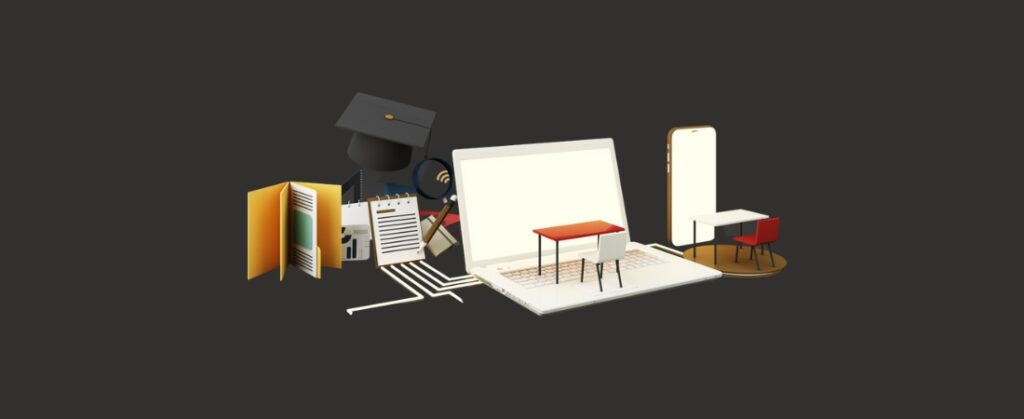Climate Change: The Physics Connection

Climate Change: The Physics Connection Video A series of three lecture videos by Nadir Jeevanjee, Princeton University on the Physics of Climate Change. In these videos presented as blackboard lectures, Jeevanjee presents simple climate models and the underlying physics. These lectures include discussions on the following topics: Introduction The atmosphere in radiative-convective equilibrium Heuristics of […]
Quantum Mechanics and Climate Change

Quantum Mechanics and Climate Change Video A lecture that describes how quantum mechanics plays a role in understanding Earth’s climate systems and climate change. This lecture by Brad Marston, Brown University, uses Richard Feynman’s double slit experiment to explain how changing concentrations of greenhouse gases could potentially affect Earth’s climate. Students will be provided an […]
An Introduction to Atmospheric Thermodynamics

An Introduction to Atmospheric Thermodynamics Video A video lecture titled, ‘Atmospheric Thermodynamics – Introduction’ from the e-learning course, ‘Introduction to Atmospheric Science’ developed by C Balaji, IIT Madras, for National Programme on Technology Enhanced Learning (NPTEL), India. This video lecture discusses the laws of thermodynamics, the gas laws, Boyle’s Law, Hooke’s law, and Dalton’s Law. […]
Amitav Ghosh on Literary Fiction

Amitav Ghosh on Literary Fiction Video Video lectures by Amitav Ghosh, author of ‘The Great Derangement: Fiction, History, and Politics in the Age of Global Warming’ as part of a 4 part lecture series delivered at the University of Chicago’s Randy L. & Melvin R. Berlin Family Lectures. In this set of two video lectures, […]
What is Cli-Fi?

What is Cli-Fi? Video A video by Stephanie LeMenager, Radcliffe Institute, Harvard University, that discusses the genre of climate fiction (Cli-Fi). The video introduces this new genre of writing and includes definitions by contemporary artists, authors and filmmakers. This video further highlights new sub-genres such as ‘anthropocene fiction’ and ‘solar punk’ that have their origins […]
Amitav Ghosh on the Politics of Climate Change

Amitav Ghosh on the Politics of Climate Change Video A video lecture by Amitav Ghosh, author of ‘The Great Derangement: Fiction, History, and Politics in the Age of Global Warming’ as part of a 4 part lecture series delivered at the University of Chicago’s Randy L. & Melvin R. Berlin Family Lectures. In this video […]
Dipesh Chakrabarty ‘The Climate of History: Four Theses’

Dipesh Chakrabarty ‘The Climate of History: Four Theses’ Reading An essay by Dipesh Chakrabarty, The University of Chicago titled ‘The Climate of History: Four Theses’ that discusses the link between human history and climate change. The reading discusses the environmental history of the planet, the ‘Anthropocene’ and how humans have become geological agents with respect […]
Amitav Ghosh on History and Climate Change

Amitav Ghosh on History and Climate Change Video A video lecture by Amitav Ghosh, author of ‘The Great Derangement: Fiction, History, and Politics in the Age of Global Warming’ as part of a 4 part lecture series delivered at the University of Chicago’s Randy L. & Melvin R. Berlin Family Lectures. In this video lecture, […]
Climate Change in Literary Fiction

Climate Change in Literary Fiction Reading An article by Amitav Ghosh, author of ‘The Great Derangement: Climate Change and the Unthinkable’ in The Guardian that discusses the lack of climate change in fictional writing. The author discusses the evolution of the narrative in novels and why fiction writers have been resistant to include the topic […]
A Commentary on Dipesh Chakrabarty’s The Climate of History: Four Theses

A Commentary on Dipesh Chakrabarty’s The Climate of History: Four Theses Video A short video commentary by Dr Maya Dodd, FLAME University, India on ‘The Climate of History: Four Theses’ by Dipesh Chakrabarty. This video commentary summarises Dipesh Chakrabarty’s essay on the link between history, literature and climate change. Dodd summarises the four theses posed […]


